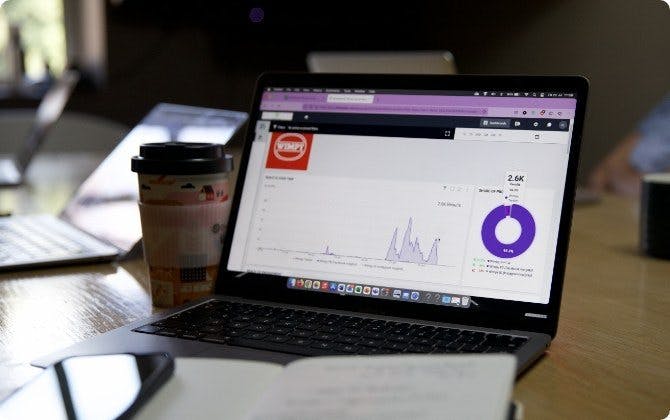Keep it organic
User-generated Content Marketing | Promotion | Awareness and Sales
What does a tech giant like Google have in common with your local mom-and-pop corner shop? Regardless of the scale of their operations, all successful businesses share a common guiding principle: Consumer is king. If a business is thriving, you can bet your last Rand that they’ve mastered the art of always giving their consumers the best experience possible. Considering that we live in a time where a consumers first encounter with a brand is in the online space, a premium consumer experience hinges on an organic digital strategy, one that ensures that you are easily found when people start looking for the product or service you offer. But why is this important when we have access to a mountain of consumer data that allows us to target audiences with unprecedented accuracy?

This will continue for a long while to come. Still not convinced? Industry leaders such as Apple don’t need any more persuasion about the matter. Apple recently implemented an update that explicitly asks consumers for their permission to collect data across apps. The update also allows users to decide which apps could share their information, giving them a never-before-seen view of how and when their data is used. The result? A slew of consumers turned off access to their data, rendering most paid advertising efforts useless.
What does this mean for marketers?
It means the days of talking ‘at’ consumers instead of talking ‘to’ them are over. Any business that’s serious about navigating this new communication landscape has to provide valuable content that consumers actually want to engage with, which has the effect of showing search engines that it’s the type of material that needs to show up in the first few search results. This is easier said than done, considering how many moving parts are at play. Success in the organic digital marketing sphere requires a brand to think about their entire ecosystem and how each part works together. All your efforts have to build off a solid foundation of data and consumer relationships to make sure you’re providing content that consumers find relevant, valuable, and engaging.
That’s all good and well, but what does look like in practise?
1st step Data analysis:
This is where search trends, Google Analytics, GWI web, and behaviour mining on social media come in handy. These insights will provide the blueprint for the different brand activities aimed at communicating with consumers. For example, if you’re looking to sell more coffee, you need to find out what type of coffee is popular in a certain geographical location. Once you have a solid foundation of data, you can then determine what your brand’s content pillars are. Splitting up your content into pillars will also help you decide which activities will perform best on what channels.
This is where the consumer journey comes in. Always ask yourself at what point of the journey your lead will find themselves on when they encounter you on a certain channel. What are their needs? How does your brand solve it? 88% of people start every purchase with a Google search, but less than 10% of people will click on a paid ad. So, how is your brand showing up organically? Is there relevant information on your website? Where are you leading people to and why?
There’s one more important aspect to consider: YOUR BRAND PURPOSE. The modern-day consumer cares about more than the product or service you offer – they’re equally concerned about the kind of environmental impact, if any, that your brand is making to the world. If your brand is going to be taken to the next level, your audience has to truly connect with your sense of purpose. What is your reason for being, and what do you stand for above all else? Think of your brand purpose as the proverbial North Star that guides all your decisions. Knowing your brand purpose is one thing: Communicating it to consumers is a whole different ball game. Brand purpose is synonymous with authenticity, something no amount of paid advertising can buy. If you want to see how we use an organic strategy to reinforce how Wimpy is a purpose-led brand, raising over R200 000 for a charity in the midst of the Coronavirus pandemic,
The squeeze is worth the juice
While organic marketing ecosystems take considerable time and effort to develop and maintain, the squeeze is definitely worth the juice. You can’t buy a consumers’ trust, no matter how deep your paid media budget is. If you think a Google AdWords campaign will give you the most bang for your buck, you might be overdue for a rethink. Paid media is a high-cost practice that provides instant gratification, but no long-term rewards, minimal CTR per Rand spent, and does little to increase your brand’s credibility. If your business appears on the first page of organic search results, it suggests that your website and business are industry leaders. And who doesn’t want to do business with a credible leader within their product, service, or field?
A marketing strategy built purely on paid media is shallow. If all you have to offer is paid ads – with no evergreen educational, entertaining, or interactive content to complement those ads – you give consumers fewer ways to connect with your brand. On the other hand, optimising your content to take advantage of a search engines ever-evolving SERP features, and creating meaningful content that adds value to your consumers lives, can give your business an authentic following that no amount of money can buy.


 View more about Kerbside Delivery
View more about Kerbside Delivery